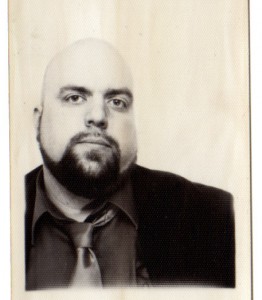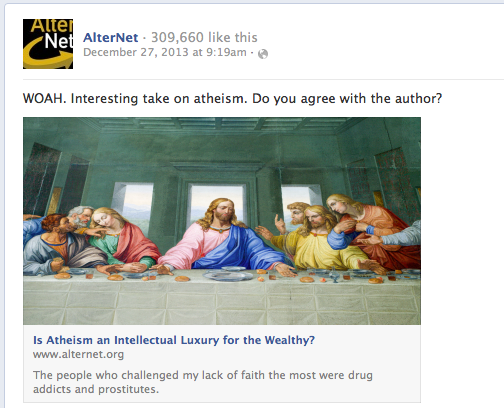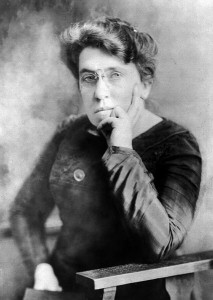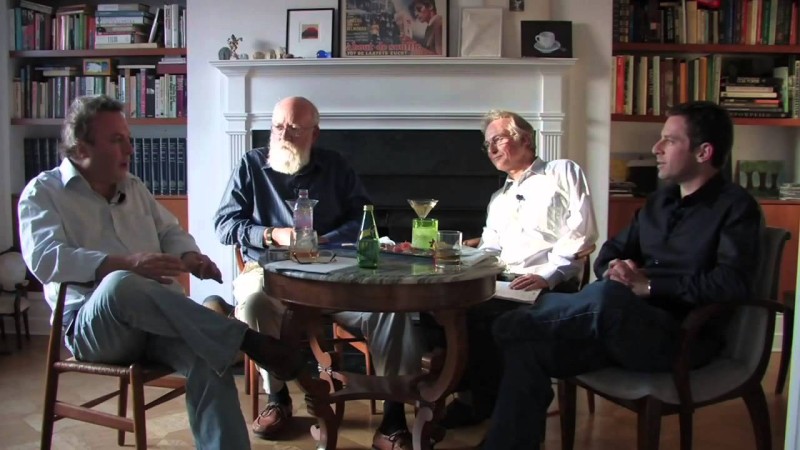On  December 24th, otherwise known to Christians as Christmas Eve, The Guardian gave atheists a Christmas present of a different kind: an article by Chris Arnade, who himself identifies as an atheist, titled “The people who challenged my atheism most were drug addicts and prostitutes.”
December 24th, otherwise known to Christians as Christmas Eve, The Guardian gave atheists a Christmas present of a different kind: an article by Chris Arnade, who himself identifies as an atheist, titled “The people who challenged my atheism most were drug addicts and prostitutes.”
As you may have noticed, the article was a huge success on the Internet. It got over 25,000 Facebook likes. It also got reprinted by Alternet, whose Facebook posting seemed to perfectly sum up the main thrust of the Internet’s response to the article: “WOAH. Interesting take on atheism. Do you agree with the author?” [media-credit name=”Facebook Screenshot” align=”aligncenter” width=”504″] [/media-credit]
[/media-credit]
I had already seen a lot of posts cheering on Arnade’s article, but that one really struck in my craw, probably because of its mix of brevity and hyperbole. As I write below, there wasn’t anything new, innovative, or remotely “WOAH” about the article, certainly not to anyone with any depth of knowledge about atheism’s history or its present. Its basic argument is that atheism is an affectation of the rich and the privileged, but the poor and downtrodden need the relief that faith gives them.
That is, in fact, a very, very old argument, and to make it stand at all, one needs to resort to a tangle of straw men and stereotypes.
Via Twitter, I began to exchange criticism with Chris Arnade, and he (quite rightly) noted that this subject was far too big for the 140-character limits of Twitter. He offered to let me call him on the phone and discuss my thoughts directly, but I was bus-hopping most of the day, and opted instead to open up via email. Below is what I sent to him.

[/media-credit]Working-class atheism in fact has a very long and distinguished history; Anarchist, feminist, and labor activist Emma Goldman was very vocal about atheism as a key factor in bringing about social justice.
I consider the email to be incomplete; there are a lot of things I didn’t even touch on, such as the way the article refers to people as “addicts” and “prostitutes,” centering that part of their lives above all else. I personally think that phrases like “people with addictions” or “sex workers,” evoke much less exotic and dehumanizing images. “Sex worker” is an especially important term to me, because it applies to so many of my friends. It’s a good phrase because it makes us remember that what they’re doing is work, and they have lives that exist outside of their work.
I’d be interested to hear what people have to say about the letter, and build on it with your own thoughts. The one thing I want to say is this: I firmly think that Chris Arnade is wrong about a lot of things, but in my correspondence with him, he’s been respectful, courteous, and I think that he’s a generally decent and well-intentioned person. I tried to maintain that respect in my letter, and I hope that anyone who comments on this post here or via social media, will show the same courtesy.
——————————————-
Chris:
Thanks for your contact info, and I’m sorry to have taken so long to get back to you. I have a lot of thoughts, and this doesn’t encompass them all. To sum up, I would say that I think that your essay pandered to a lot of stereotypes ,both about atheists and about poverty.
First of all, whenever I see a writer centering their criticisms of atheism on Richard Dawkins, or the other members of the “Four Horsemen,” it says to me that they haven’t bothered to look any more deeply into the subject than the headlines of 2006. The God Delusion was tremendously influential on many people, including myself, but that was seven years ago. Dawkins and the other members of the so-called “Four Horsemen” do not represent the future of the movement. They have come under heavy criticism — Dawkins especially — from within atheist communities, and the most prominent writers and activists have their own visions of atheism. Using Dawkins, Hitchens, or Harris as synecdoches for modern atheism is not only misguided and inaccurate, it is offensive; It is a systemic and deliberate erasure of hundreds of writers and activists who have striven to articulate their own visions which integrate feminism, LGBT rights, anti-racism, class analyses, and much more within their atheism. We are far more than Richard Dawkins’s fan club. To imply otherwise is to ignore the voices of Greta Christina (my colleague at Godless Perverts), Heina, Rebecca Watson, Sikivu Hutchinson, Zinnia Jones, Ian Cromwell, Hemant Mehta, and many others are irrelevant, and that all of their writing, speeches, and activism has done nothing but resound in a void.







Your thesis — that atheism is a luxury of the privileged — holds up much better if atheism can be characterized simply as the proclamations of Dawkins and the other Horsemen, and the people I list above are merely echoes. I contend that if critics of modern atheism like yourself can only point your criticisms to what Dawkins says, while ignoring the efforts of queers, women, trans people, and people of color, that is a far more concrete expression of bigotry than anything your essay critiques.
#
Atheist communities are at this moment having huge problems with racism, misogyny, homophobia, and anti-trans prejudice. If your piece had been intended to build a constructive critique about those issues, I would have certainly embraced it. We have a long way to go, as does the society around us.
But despite those problems, our future does not look like Richard Dawkins, Sam Harris, or Daniel Dennett. They are not the relevant people to look to when you ask, “What is atheism, and where is it going?” The people I list above are, I think, much more relevant answers to that question. That so few people are willing to acknowledge that, and instead look at books published seven or eight years ago when analyzing modern atheism, represents a failure on the part of mainstream media. That failure is central to your essay.

Portrait of a convenient media myth. The so-called Four Horsemen of Atheism: Christopher Hitchens, Daniel Dennett, Richard Dawkins, and Sam Harris.
Soon I saw my atheism for what it is: an intellectual belief most accessible to those who have done well….
I want to go back to that 16-year-old self and tell him to shut up with the “see how clever I am attitude”. I want to tell him to appreciate how easy he had it, with a path out. A path to riches.
I also see Richard Dawkins differently. I see him as a grown-up version of that 16-year-old kid, proud of being smart, unable to understand why anyone would believe or think differently from himself. I see a person so removed from humanity and so removed from the ambiguity of life that he finds himself judging those who think differently.
So, you learned not to be a judgmental asshole. That’s good. Having worked at the very bottom of Wall Street (temp data entry and legal proofreading), I know that there’s a lot of people in that business who could benefit from a similar epiphany.
But there’s a difference between changing how you see atheism, and changing how you see Dawkins. The two are wholly different, although if you’ve come to see atheism as nothing more than the Church of Dawkins, it’s extremely easy to mistake them.
#
Likewise, many people mistake disrespect for religion with disrespect for religious people. It’s true that the one may bleed over into the other, but it’s also true that religious demagogues regularly promote the idea that disbelief in the god is equal to disrespect of the person. You actually depict an instance of this in your Guardian piece, although you seem to depict it as your own moral failing, not that of the Preacher Man. In response to what I found a fairly respectful explanation of your own beliefs (especially given his inability to take “no” as an answer), he responds with wrath and judgment:
Preacher Man’s eyes narrowed. He pointed at me, “You are an APE-IEST. An APE-IEST. You going to lead a life of sin and end in hell.”
My respect for the humanity of the people you depict in your essay is not lessened one iota by the fact that I think that they’re wrong about god. The existence of god, for better or for worse, does not become more or less likely because of someone’s advantages or lack thereof. Acknowledging that is not in itself disrespectful.
You seem to feel otherwise, and therein lies the paternalism that I find most disturbing about your essay. Your thesis is one that is extremely reminiscent of European and American freethinkers from the Enlightenment Era. During that time, it was quite common among Deists, agnostics, and atheists to look at religion as something that any educated person could see was mere superstition and codswallop. Nevertheless, as a practical matter, it was best if the common people continued to believe in religious orthodoxy, both to ensure their obedience and to give them relief from their daily woes.
This is a legacy that most atheists have left far behind, and yet, whether you intend it or not, I see it strongly in your essay. You don’t believe in God, but that’s a luxury of the privileged; for the poor, their lives will be much better if they continue to believe.
I can’t express how condescending and paternalistic I find that. Religion, especially Christianity, has more of a history of teaching people to tolerate their own suffering, rather than helping to alleviate it. Poor people are told that they are in fact blessed by their poverty and suffering, and that they will be rewarded in the life after this one. That is certainly what Mother Theresa told her charges. It allowed her to pretend that her own conscience was clean when she provided minimum care to the sick while socking away millions for the Church.
Carl Sandburg, himself a Christian, could have been speaking to generations of priests and religious mountebanks when he wrote “To Billy Sunday”:
You tell people living in shanties Jesus is going to
fix it up all right with them by giving them
mansions in the skies after they’re dead and the
worms have eaten ‘em.You tell $6 a week department store girls all they
need is Jesus; you take a steel trust wop, dead
without having lived, gray and shrunken at
forty years of age, and you tell him to look at
Jesus on the cross and he’ll be all right.You tell poor people they don’t need any more
money on pay day and even if it’s fierce to be
out of a job, Jesus’ll fix that all right, all right –
all they gotta do is take Jesus the way you say.
With your essay, you ask: “Who am I to tell them the one thing that gives them hope and allows them to find some beauty in an awful world is inconsistent? I cannot tell them that there is nothing beyond this physical life. It would be cruel and pointless.”
To me, this is completely the wrong question. We should be asking what it says about us that the only hope we are willing and able to give the poor is to hope for divine intervention, or some heavenly reward after they’re dead. If there is a sickness, a fundamental cruelty at the heart of our society, it is the number of people who we allow to live with the knowledge that their only hope, their only way out, is if a fluke of mathematics brings them a winning lottery ticket.
Does atheism make me hopeless? No, although people do a pretty good job of that a lot of the time. I know of no god in any religion that I would be happier to share a universe with. The vast majority are petty, cruel, and exist only to enshrine the worse tendencies of human beings as virtues.
My atheism does tell me that because there is no life after this one, we have only one chance to make sure that our fellow human beings have as much hope, beauty, and justice available as possible.
#
And now, after all this, I will concede that in one respect, you’re right: atheism is much more accessible to those with certain privileges. But contrary to the point of your essay, that makes less of a statement about atheism than it does about our society.
Being an atheist in the best of circumstances can mean that you lose access to a lot of community networks. You might be spurned by your family, and you may become disconnected from people you would otherwise interact with at church or temple. Many black atheists, like Sikivu Hutchinson and Ian Cromwell, have written about how isolating the simple question “Which church do you go to?” can be. In certain black communities, it’s taken as a given that a responsible member of the community will also be a churchgoer.
If you’re poor, there may not be a lot of wiggle room to give up those resources and connections. A lot of charity is done through religious organizations, and that means singing the song their way. Becoming non-religious means being more alone, and fewer people willing to look upon you as someone worthy of their time and charity. There are a lot of people who can’t afford that. The people who can be open about atheism and loud about it are protected from many of the consequences by privilege. The same could be said of any other group that challenges the status quo. That has little to do with the hubris of atheists, and more to do with society’s belief that looking to god above is a better sign of virtue than looking to the person next to you.

About Chris Hall
A somewhat nerdy pervert who looks (mostly) normal on the outside, Chris Hall is fascinated by the politics, culture, and art of sex. He has written for The Atlantic, Alternet, SF Weekly, Slixa, numerous anthologies, and a dog blog that will go discreetly unnamed here.


Leave a Reply